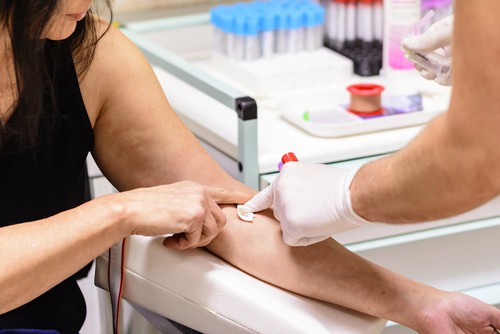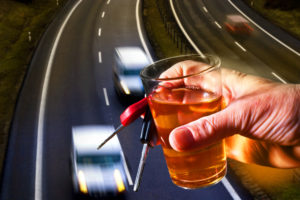
There can always be differences between the two types of testing due to inaccuracies of the methods used. There is a significant difference between blood alcohol and breath alcohol. Before understanding the difference between the two, it is important to understand the process through which alcohol enters the body, leading to intoxication.
It involves five stages:
- Consumption
- Entering the stomach
- Gastrointestinal tract
- Epithelial cells
- Diffusion
Consumption entails the process through which an individual drinks the alcoholic drink. Consumption is usually through the mouth, and the alcohol trickles down the throat into the stomach. As it enters the stomach, digestion takes place, and the cell membrane in the stomach absorbs some alcohol into the bloodstream. Drinking on an empty stomach makes the situation worse because the alcohol has direct contact with the small intestines, which is part of the gastrointestinal tract.
The capillaries in the digestive tract absorb the alcohol into the bloodstream. The epithelial cells cover the capillaries, and because of their large surface area, they make alcohol absorption into the bloodstream more efficient. The remaining alcohol diffuses slowly into the bloodstream. Once in the blood, alcohol travels to the respiratory system.
Differences Between a Breathalyzer and a Blood Test
A breathalyzer test involves blowing a breath sample into a handheld machine, whereas a blood test involves taking a blood sample to measure it against the allowed BAC level. It is uncommon for a breathalyzer to read higher than a blood test. From the above biological process, it is evident that the cell membranes in the stomach absorb most of the alcohol in the blood before it circulates to the respiratory system. Raw blood provides more accurate results compared to a breath sample.
Standard Field Sobriety Tests
After a DWI stop, the officer on patrol will ask to take a driver’s breath sample to establish whether their alcohol level falls within the limit. Before asking for a BAC test from a suspected driver, the officer on duty should consider other evidence against them first. The officer should conduct a field sobriety test to determine how drunk or how sober a driver is. Standard field sobriety tests include the:
- One-leg stand
- Walk and turn
- Horizontal gaze nystagmus (also called eye jerking)
The one-leg stand usually requires the driver to stand on one foot, with their arms spread out for thirty seconds to detect impairment. The driver fails if they keep swaying or putting their foot down. The walk and turn method involves taking a few steps in a straight line and then turning with one foot. The purpose is to determine whether the driver can achieve multiple tasks with divided attention.
If a Driver Refuses a Breathalyzer or Blood Test
A driver can refuse when the officer on duty fails to conduct the field sobriety tests before asking for the BAC test. Some states give drivers leeway to refuse testing. In Texas, however, by obtaining a driving license, people give consent to submit DWI tests to a police officer on patrol or chemical tests as ordered. This is valid under the Texas implied consent law. The police can also take the test without a driver’s consent where they have a previous DWI record, under Sec. 724.011(3)(a) of the Texas Transportation Code.
However, it is possible to legally refuse to submit BAC testing under Sec. 724.013 of the Texas Transportation Code. Police officers have a duty to respect a driver’s decision, but they can face serious consequences for such refusal. In most cases, refusal can result in license suspension (as affirmed by the Texas Department of Public Safety). After a DWI stop, people have a right to choose the type of BAC testing to which they want to submit.
Why a Driver May Want to Speak With a Lawyer
DWI cases fall under the jurisdiction of criminal courts, and defendants can get harsh sentences for this crime. All accused have the right to retain a lawyer to help them with their case. If they do not have any legal experience, a driver may not be able to evaluate the strengths and weaknesses of their DWI case alone.
The following are reasons why a driver charged with DWI may consider hire a DWI lawyer:
- They will analyze all supporting evidence
- They will help to dispute both long-term and short-term license suspension
- They will fight for the plaintiff’s freedoms and rights in court
A DWI trial can lead to long-term or short-term license suspension. An attorney that knows the system well understands the steps they need to follow to avoid long-term suspensions. An attorney will help someone charged with DWI to plan a defense strategy that will depict doubt toward the chemical DWI test. Challenging the accuracy of the equipment used can create reasonable doubt, and the court can throw out the test results and disregard the evidence presented in support of the driver’s intoxication.

Ask for Legal Help
Getting a DWI charge can threaten someone’s freedom in the future. The chemical tests conducted can show evidence of intoxication. A Dallas defense lawyer can help people explore the technical errors present in the testing procedures to challenge the validity of their charges.
Contact the Law Offices of Randall B. Isenberg today at (214) 696-9253 for a free consultation. Let us help to evaluate the legality of an arrest and to identify the potential errors that may have led to a violation of constitutional rights. We can explain how a breathalyzer cannot read higher than a blood test, if anyone has any questions.










